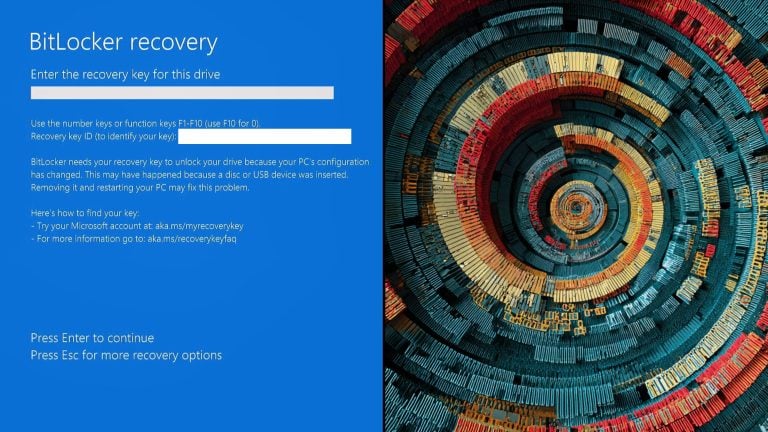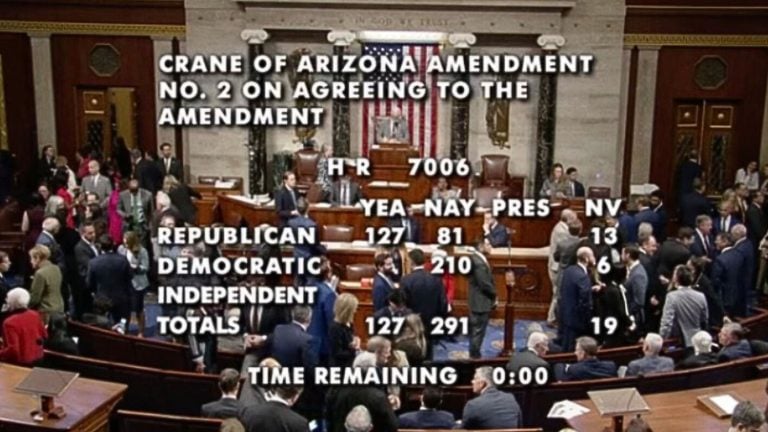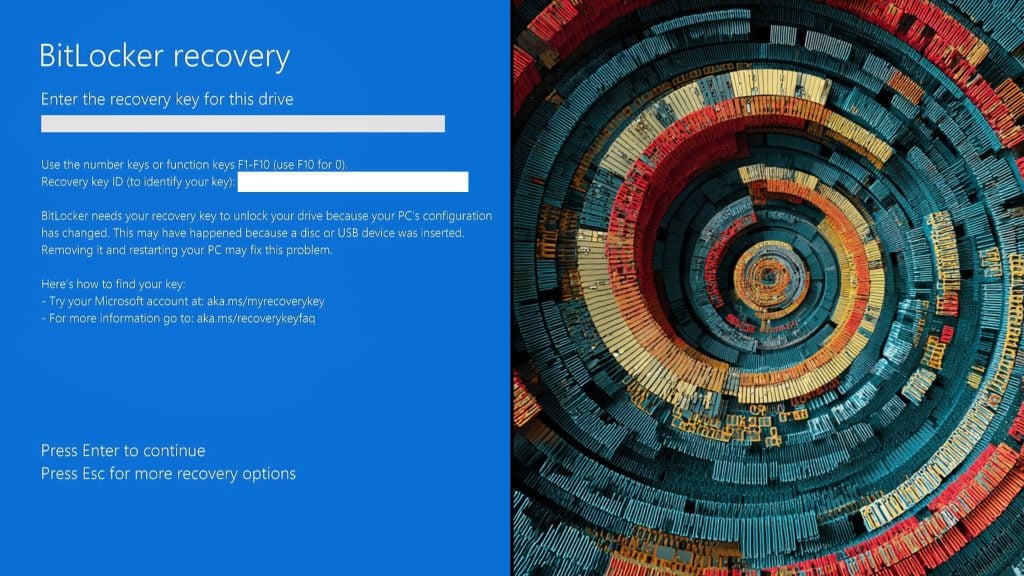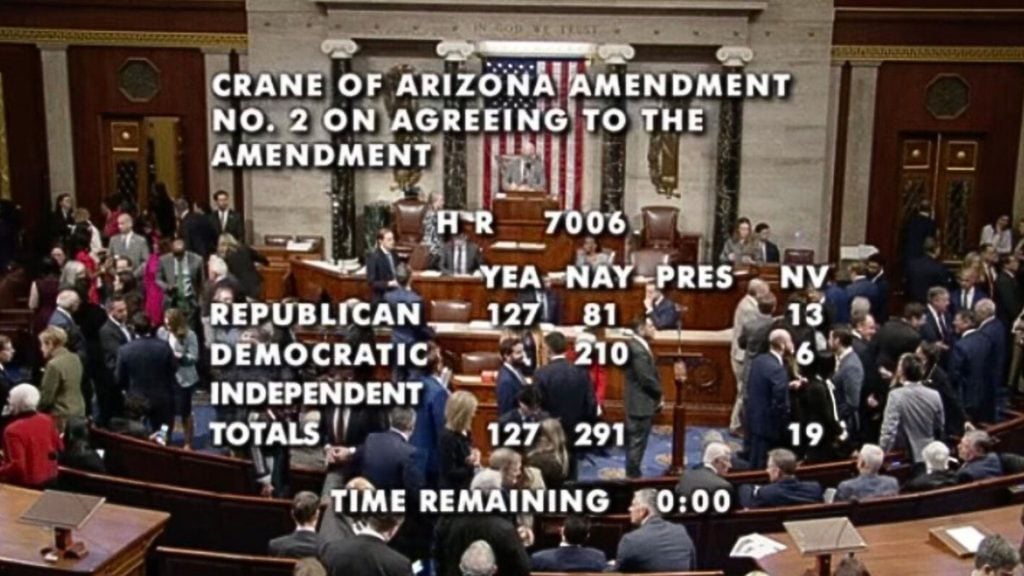Congressional leaders have unveiled a stopgap spending bill to avert a government shutdown and keep federal agencies funded through March 14. Buried within the bill is a short section, extending the funding for the Global Engagement Center (GEC). This controversial program is supposedly designed to target foreign disinformation but has several times led to the censorship of US citizens and media outlets.
The introduction of the 1500+ page stopgap funding bill just days before the looming deadline has left members of Congress scrambling to act. With federal funding set to expire at the end of Friday, lawmakers are racing against the clock to avoid a government shutdown. The timing is especially critical as both the House and Senate aim to adjourn further compressing the window for deliberation.
This eleventh-hour approach has drawn criticism for its lack of transparency and the pressure it places on legislators. With only days to review the proposed legislation, many lawmakers have little time to thoroughly examine the bill’s details, raising concerns about the ability to make informed decisions. The public, too, has limited opportunity to scrutinize the measure, which encompasses critical funding for federal programs ranging from military operations to regulatory agencies.
Regarding the GEC, its funding was originally set to expire this month, the GEC’s mandate will now extend to 2025 if this bill is passed.
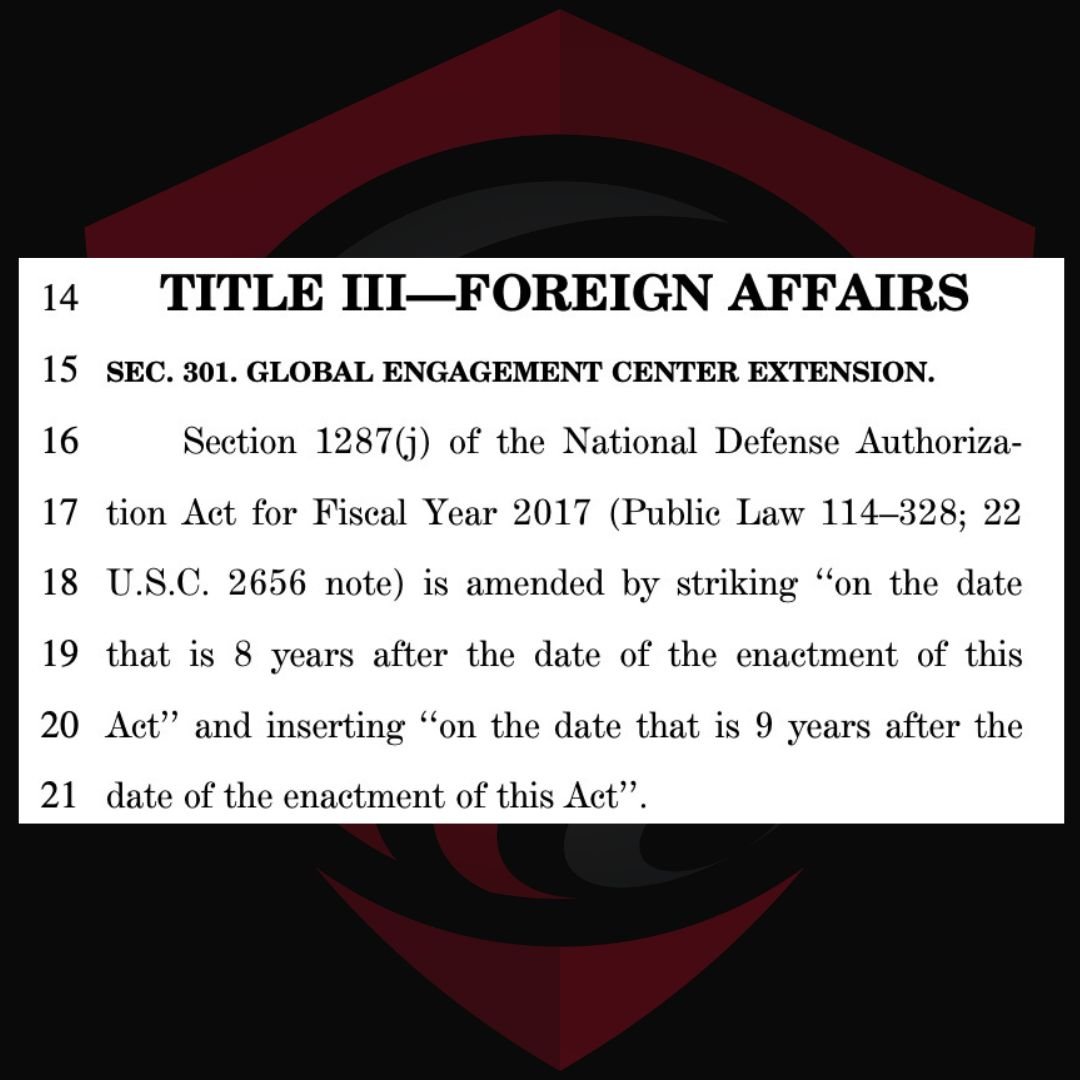
The extension has sparked debate, as the center has faced criticism over alleged involvement in suppressing US-based media content in its fight against foreign disinformation.
Originally tasked with countering foreign disinformation from adversaries like Russia and China, the GEC now faces allegations of mission creep — silencing American voices under the guise of protecting “truth.”
Critics argue the GEC collaborates with social media giants like Facebook and YouTube, advising them on “misleading narratives,” and funding initiatives that blacklist and remove online content. The result, they say, is a sanitized internet where opinions deemed inconvenient are suppressed.
Republican lawmakers and Texas Attorney General Ken Paxton lead the backlash, accusing the GEC of violating First Amendment rights. Media outlets like The Daily Wire and The Federalist have joined forces with Texas in a lawsuit, claiming the GEC unfairly targets right-leaning platforms as “disinformation,” throttling their reach and ad revenue.
High-profile supporters, including former NSA Director Paul Nakasone, defend the GEC as vital for national security. But his involvement—and his current role at OpenAI—has raised eyebrows.
Sens. John Cornyn (R-Texas) and Chris Murphy (D-Conn.) are pushing an amendment to keep the GEC funded through 2031. Cornyn said that the GEC serves a “useful function.”
Murphy told Politico last week that even though some of the concerns from Republicans were “legitimate,” that “it would be a real mistake to lose that capacity.”


